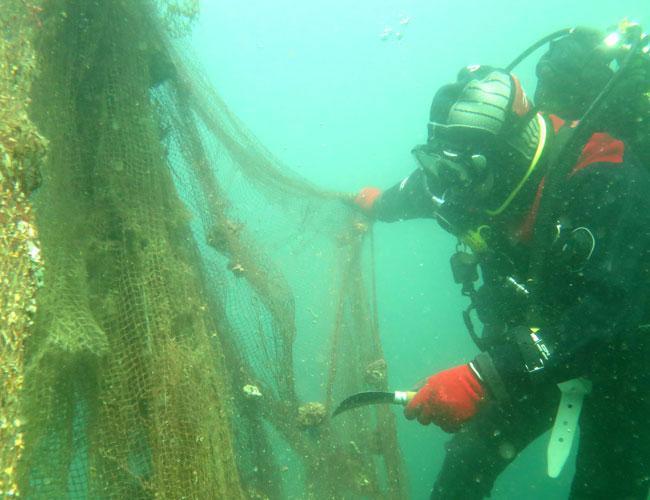Dardanelles, Aegean island waters freed from ‘ghost nets’
ÇANAKKALE – Demirören News Agency

Some 17,750 square meters of abandoned fishing nets have been removed from Turkish waters around the Dardanelles Strait and the islands of Bozcaada (or Tenedos) and Gökçeada (or Imbros) since 2016 as part of an Agriculture and Forestry Ministry project.
“The success of the project is dependent on the sensitivity of the fishermen. Because they know the scarcity of our water resources, they should not use fishing gear in risky areas,” said Erdem Karadağ, the provincial director of the Agriculture and Forestry Ministry in the northwestern province of Çanakkale.
Karadağ also called on fishermen to inform authorities about their missing fishing gear “to determine new areas where works will be conducted and to boost the effectiveness of the project.
Abandoned fishing nets create a huge problem called “ghost fishing.” These nets can travel long distances from their points of origin and can remain in the seas long after they are discarded, resulting in the entrapment and death of marine mammals, sea birds and fish.
Within the scope of the Agriculture and Forestry Ministry’s “Abandoned Fishing Gear Removal” project, a total of 17,750 square meters of “ghost nets” have been collected in 37 scanned areas covering 484,700 square meters in Turkish waters between 2016 and 2018.
Of these 17,750 square meters of abandoned nets, 3,000 square meters came out from off the Bozcaada and Gökçeada shores in 2016 and some 11,000 square meters from the waters around the Dardanelles Strait in 2017, and 3,750 square meters in 2018.
Some of these fishing gears are not deliberately discarded but are lost in storms or strong currents or result from “gear conflicts,” for example, fishing with nets in areas where bottom-traps that can entangle them are already deployed.
Experts warn that fishing nets cause extensive damage to the marine ecosystem.
Not only do these nets trap and kill marine animals, but also dead organisms that accumulate on nets lead to a rise in bacteriological pollution in the waters, according to experts.
















